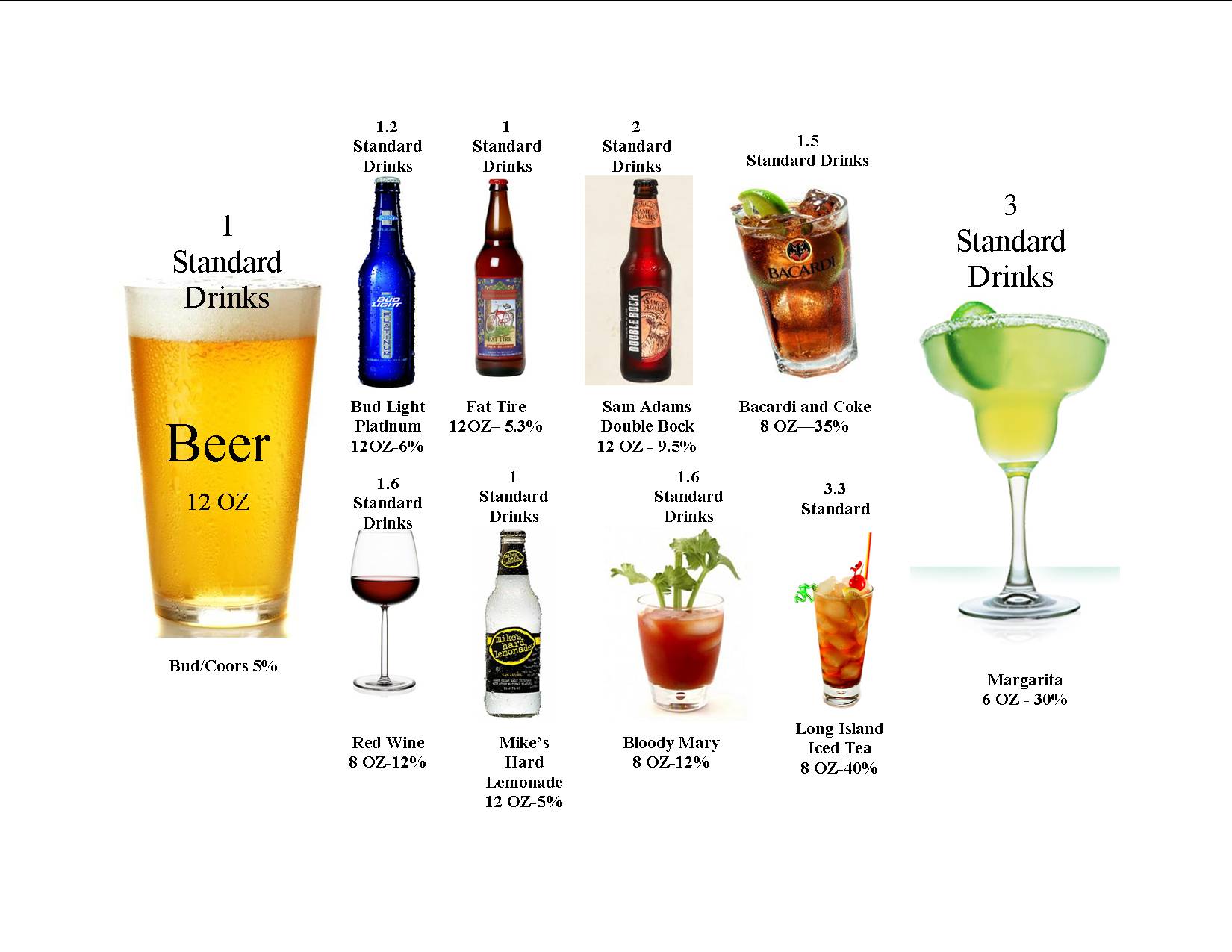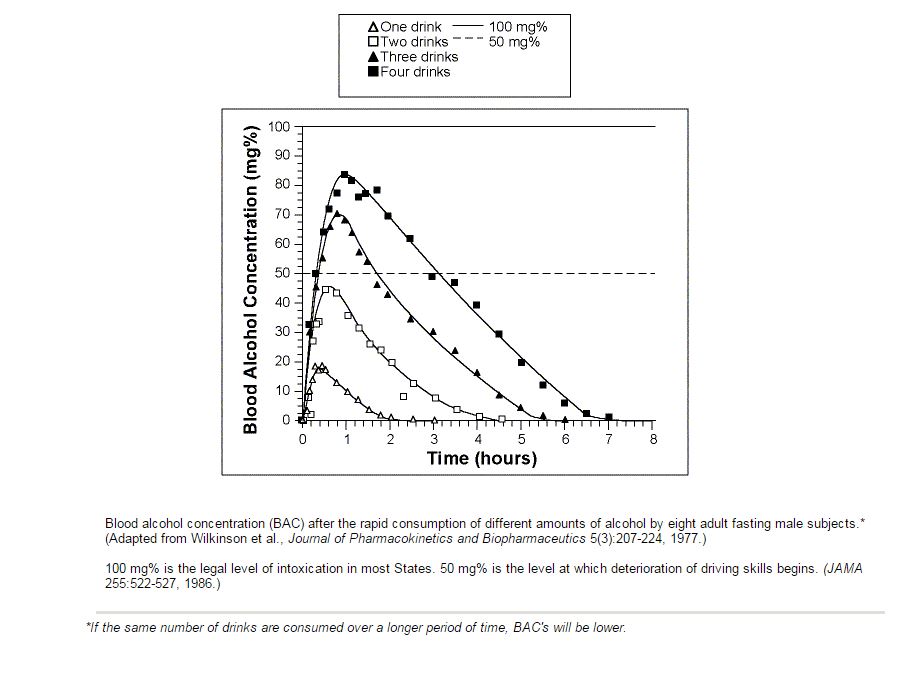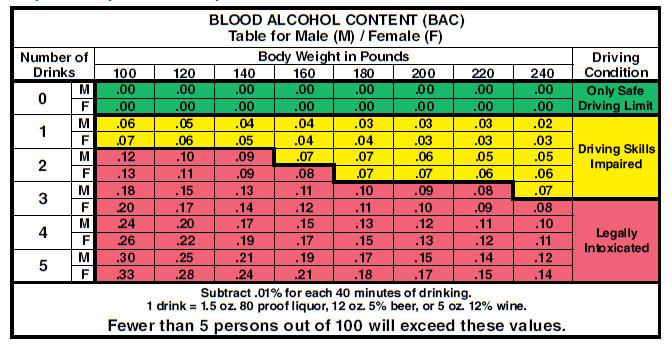
How is BAC Determined in Pennsylvania?
If you have been arrested for a DUI in Pennsylvania, you may be asked to take a breathalyzer test or submit to a blood test. Both are used to determine your Blood Alcohol Concentration (BAC) at the time of your DUI arrest; blood is more reliable and accurate than breath.
What is Blood Alcohol Content?
Blood alcohol content (BAC) is the concentration of alcohol in your bloodstream. When you drink an alcoholic beverage, the alcohol enters your bloodstream. The more you drink, the higher the concentration of alcohol in your blood. In Pennsylvania, the legal BAC level is 0.08 percent for adults over the age of 21. If you are driving with a BAC of over 0.08 percent, you are considered legally over the limit and will be charged with DUI (driving under the influence). The BAC test measures the amount of alcohol in the bloodstream. For example, a BAC of 0.05 percent means that the person has a concentration of alcohol of .05 grams for every 100 ml of blood.
How Does the Body Remove Alcohol from Your System?
Metabolism is the body’s process of converting ingested substances to other compounds. Metabolism results in some substances becoming more, and some less, toxic than those originally ingested. Metabolism involves several processes, one of which is referred to as oxidation. Through oxidation, alcohol is detoxified and removed from the blood, preventing the alcohol from accumulating and destroying cells and organs. A minute amount of alcohol escapes metabolism and is excreted unchanged in the breath and in the urine. Until all the alcohol consumed has been metabolized, it is distributed throughout the body, affecting the brain and other tissues.

What Impacts Your Blood Alcohol Level?
There are several factors that can affect your BAC:
Body size: a person who is smaller and weighs less will have a higher BAC than a larger person. This occurs because the alcohol is more concentrated in a smaller-sized body.
Body fat: Body fat doesn’t absorb alcohol as readily so a person with more body fat will tend to have a higher BAC.
Empty stomach: Drinking on an empty stomach will increase the BAC because the body immediately allows the alcohol to enter the bloodstream. A full stomach absorbs some of the alcohol and thus lowers the BAC.
Gender: Women who drink the same amount as men will almost always have a higher BAC, primarily because of their size.
Medications: Other drugs and medications can have adverse effects and unpredictable interactions with alcohol.
Health Concerns: Genetic enzyme deficiencies (alcohol dehydrogenase and aldehyde dehydrogenase) and a myriad of other health conditions may decrease the body’s ability to process alcohol.
“Chugging” vs. “Skillful sipping”: Going overboard with drinking is like overdosing. The more alcohol you drink within a short period of time, the more you overtax your body’s ability to metabolize the alcohol.
Mixers: Sugarless mixers allow alcohol to enter the bloodstream more easily. Grapefruit juice mixers also increase the rate of alcohol absorption.

How to Determine Blood Alcohol Content (BAC)
You can make a rough estimate of your BAC. When determining your BAC, remember that one drink is equal to:
One standard drink
- One 12 oz. regular beer (4.5% alcohol)
- One 7 oz. malt liquor (7% alcohol)
- One 5 oz. glass of wine (12% alcohol)
- One 1.5 oz. shot of hard liquor (40% alcohol)
- One-third jigger (.5 oz.) of Everclear (95% alcohol)
More than one standard drink
- One 16 oz. cup of beer = 1.4 drinks
- One 40 oz. beer = 3.6 drinks
- One 22 oz. malt liquor = 3 drinks
- One 12 oz. glass of wine = 2.9 drinks
- One 12 oz. margarita = 2–4 drinks, depending on ingredients
- One 12 oz. cup of trashcan punch = 4–10 drinks, depending on ingredients
You will need to know your weight, the number of fluid ounces of alcohol consumed, the percentage of alcohol in the drinks you had, and the length of time, in hours, that you spent drinking.
Using that information client below for a BAC Calculator:
BAC CALCULATOR
How Paul S. Peters III, Esq. Will Help You:
When you are up against DUI charges, you need an attorney, like Paul S. Peters III, Esquire who will stand by you every step of the way, work hard to discredit any evidence – and work with you to determine your best course of action. Attorney Peters will advocate for your entry into the ARD program if feasible, fight for the best plea deal possible if that is your best option, or be fully prepared to defend your rights at trial and attack all evidence against you. For trial, Attorney Peters has a network of experts in different areas of DUI evidence that you will have the option to hire for testimony and analysis in your trial.
Pennsylvania DUI Law
DUI is described and defined under The Pennsylvania Code under Title 75, Chapter 38. Read the code here.
If you or a loved one have been charged with DUI in Montgomery, Philadelphia, Bucks, Delaware, Chester, Lehigh, LancasterNorthampton, Berks, County, it is vital that you contact the Aggressive, Experienced, Trusted, and Compassionate Pennsylvania DUI Defense Lawyer, Paul S. Peters III, Esq.
To protect your rights in a DUI case, YOU BETTER CALL PAUL!
215-291-2944 or 215-696-1509
ppeters@thepetersfirm.com
Call 24 Hours/7 Days a week as Paul knows that the Police and Crime never sleep!
TRUSTED, AGRESSIVE, ZEALOUS, AND EXPERIENCED PENNSYLVANIA CRIMINAL DEFENSE ATTORNEY
If you arrest in any of the following Pennsylvania Counties: Montgomery, Philadelphia, Bucks, Delaware, Chester, Lehigh, Lancaster, Northampton, Berks, Adams, Cumberland, Dauphin, Franklin, Fulton, Huntington, Juniata, Lebanon, Mifflin, Perry, Snyder, York Bradford, Cameron, Centre, Clinton, Lycoming, Montour, Northumberland, Potter, Sullivan, Tioga, Union, Carbon, Columbia, Lackawanna, Luzerne, Monroe, Pike, Schuylkill, Susquehanna, Wayne, and Wyoming County
It is important you contact the trusted, aggressive, and experienced Pennsylvania Criminal Defense Attorney:
Paul S. Peters III, Esquire at:
215-291-2944
ppeters@thepetersfirm.com



